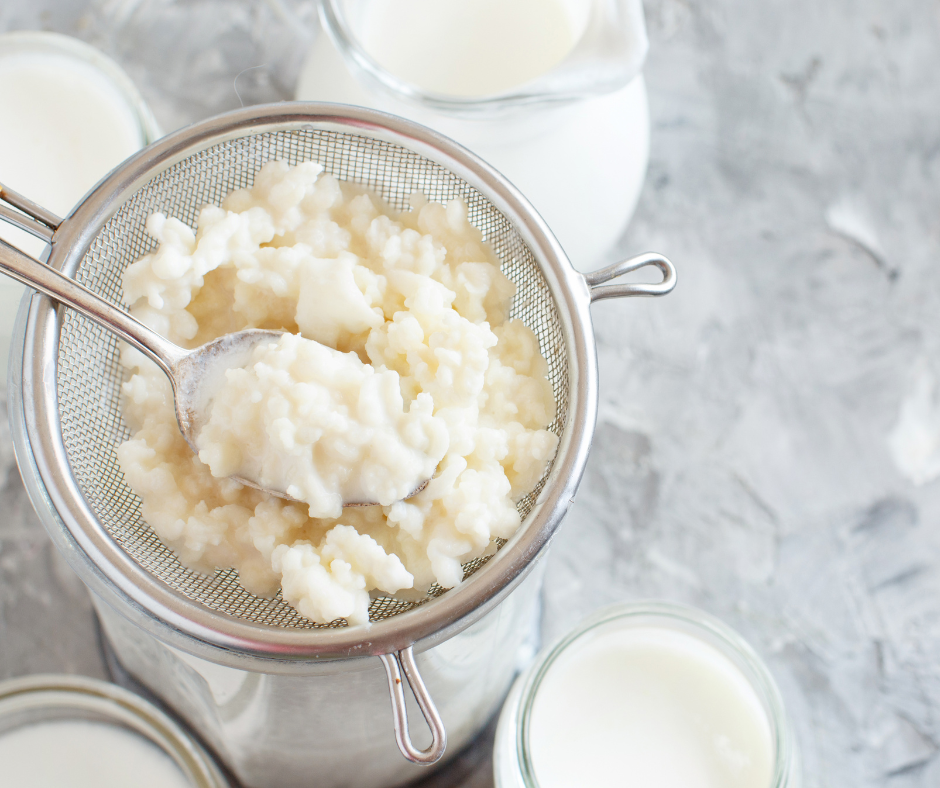Kefir is hands down one of the best ferments for supporting the gut! While fermented dairy kefir is about 98% + lactose free some people still have a hard time digesting dairy. You’ll need to obtain Kefir Grains in order to make your kefir. We suggest ordering grains online from Cultures for Health or GEM Cultures .
With that in mind here is how we do Kefir both with dairy and without dairy! Make sure to read our notes at the end about keeping your grain cultures happy and healthy!
MILK KEFIR (DAIRY)
Ingredients
1 tablespoon kefir grains
8–16 ounces of milk (Goat or Cow: Organic, Non-Homogenized, and Raw are best.)
Instructions
Add 1 tablespoon kefir grains to 8–16 ounces of raw milk in a jar with a lid.
Let it sit on the counter at room temperature for 24–72 hours depending on how sour you like it. You can taste it to check.
Shake a couple times a day to keep fresh nutrients available to the grains.
Strain the milk so you can keep the kefir grains to make a new batch.
Put the strained kefir in a jar with a tight lid and keep it out of the fridge for a few hours. This will increase fizziness.
NOTE: The grains multiply. You can share them with friends or keep growing more. They work better if you keep them outside of the fridge. If you need to take time off from kefir, you can place them in some fresh milk and then put them in the fridge indefinitely. Once you are ready to use them again, rinse them off and begin the process from the beginning.
COCONUT KEFIR (NON-DAIRY)
Ingredients
1 Tablespoon kefir grains
8–16 ounces of full fat canned coconut milk or you can get young Thai coconuts and use the water and scrape the pulp and blend to make your own coconut milk
Instructions
Use the same recipe for original milk kefir; just replace the dairy with coconut milk.
NOTE: Make sure to put the grains in dairy milk every 2–3 batches to keep them happy and healthy.
